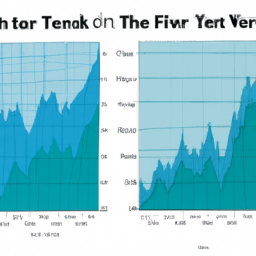It is important for investors to understand the differences between ETFs and index funds before making an investment decision. Exchange-traded funds (ETFs) and index funds are both types of investment products that allow investors to spread their capital across a range of different assets and markets. ETFs are a type of investment vehicle that trades on exchanges and tracks a particular index or basket of assets. Index funds, on the other hand, are a type of mutual fund that invests in a specific group of securities that are chosen to replicate the performance of a particular index.
Last year, for example, U.S. equity ETFs experienced a net inflow of $263 billion while open-end U.S. equity mutual funds experienced an outflow of $132 billion. This suggests that investors may be increasingly turning to ETFs as an attractive alternative to mutual funds.
On average, our findings show, an ETF gives an extra 0.20 percentage point a year in posttax performance compared with mutual funds, and the difference tends to be greater for smaller funds.
ETFs are pooled securities like mutual funds, but as the name suggests, ETFs trade similarly to stocks on an exchange. Most ETFs passively track a benchmark, such as a broad market index like the S&P 500, and are designed to replicate the performance of the benchmark as closely as possible. ETFs are usually much more tax-efficient than mutual funds, as they generally do not trigger capital gains taxes as long as they are held in a tax-advantaged account such as an IRA or 401(k).
Index funds are similar to ETFs in that they are designed to track a certain benchmark or index. As the name suggests, an index fund is a mutual fund that invests in a portfolio of securities that mimic the performance of a particular index. Most investors now buy index funds rather than actively managed funds because of their low costs and the ability to track the performance of the underlying index.
Do you think an index fund is much more diversified than an ETF? It cannot be more diversified because it is tracking the same index and so the same stocks are in both. However, ETFs tend to have a lower cost structure than index funds, as ETFs are traded on an exchange and incur fewer transaction costs than index funds.
With a mutual fund, you may realize gains even if you are still holding it. In comparison, ETFs can be sold and purchased at any time during the trading day, which makes them easier to trade without incurring capital gains taxes. ETFs are also more tax efficient and typically have lower expense ratios than index funds.
Which ETFs are the most attractive buys right now? While there are plenty of choices, my view is that the Vanguard Small-Cap Index Fund (AMEX:VB) is the most attractive ETF right now. This ETF tracks the performance of the S&P 600 Small-Cap Index and has a low expense ratio of 0.07%.
These Funds Are Popular on Social Media. While most ETFs track the performance of a certain index, some ETFs are actively managed and are highly popular on social media. For example, the iShares Robinhood ETF (RB) is an actively managed fund that seeks to identify the most popular stocks on social media platforms such as Reddit and Twitter.
As a caveat, index funds generally have a more modest risk-reward profile compared to individual stocks, but the Vanguard ETF still produced a return of 17.19% over the past year.
In conclusion, investors should understand the differences between ETFs and index funds before investing. ETFs are generally more tax-efficient, easier to trade, and have lower expense ratios than index funds. However, index funds may be more diversified and offer a more modest risk-reward profile.
